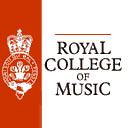The director of the Royal College of Music has criticised the “steady decline” of music provision in UK state schools.
Prof Colin Lawson used a speech celebrating Prince Charles’s 25-year association with the school to add his voice to a situation that Andrew Lloyd Webber has called a “national scandal”.
Lawson praised work that has been done to analyse the effect of arts and culture on public health.
“This work seems especially important in view of the steady decline in music provision in state schools within the UK, reflected in ever smaller numbers of arts candidates at GCSE, down 20% since 2010,” he said.
But he said a combination of cuts to school budgets and the consequential loss of specialist teachers had created a skills loss.
He particularly criticised Bingley grammar school in West Yorkshire, which has started charging pupils taking music as a GCSE for after-school theory lessons.
Sharing a stage with Prince Charles, Lawson said: “We were of course appalled to note the widely flagged situation of one grammar school in the north of England which resorted to charging pupils £5 a week to take GCSE music out of hours.
“In a climate where the RCM is required to hit ever more challenging diversity targets this is dispiriting news indeed.”
The perceived decline of arts education in UK schools is, in many eyes, one of the most urgent cultural policy issues.
Last month Arts Council England (Ace) announced more details of the Durham commission on creativity and education, which will explore the best ways of nurturing creativity in young people.
The commissioners will be leading figures from business, culture and academia. Already signed up are the children’s laureate Lauren Child, the architect Sir David Adjaye, and the dancer and choreographer Akram Khan.
It will be chaired by the Ace chairman, Sir Nicholas Serota, who said the commission was an opportunity to “step back, review the evidence, see what has worked and come up with some proposals” that could be considered by his organisation and the government.
The biggest problem, many believe, is the lack of a compulsory arts subject in the English baccalaureate, which has led to petitions and protests but no sign from the government that is prepared to change its stance.
Serota believes it is a wider issue than the Ebacc. “Even if they were to open the Ebacc to one arts subject, I don’t think that would be the complete solution. In my view, it would help, but it would only be a partial solution.
“What I think the Durham commission might do is come up with a number of ideas that would be applied across the country to ensure kids in all kinds of schools get the kind of opportunities that are currently available only in the best of schools.”
A number of studies have suggested a trend for falling numbers of children taking arts subjects.
A report last year by the Education Policy Institute said the proportion of 15- and 16-year-olds in England studying arts subjects, including music, had fallen to the lowest level in a decade as a result of government policies and education cuts. The EPI estimated that about 19,000 fewer pupils took arts subjects at key stage four last year compared with in 2014.
The Department for Education said: “Arts subjects are an important part of our broad and balanced curriculum and music is compulsory in all maintained primary and secondary schools up to the age of 14.
“We are investing £400m in music and arts education programmes, including in the 120 music education hubs across the country which give every child the opportunity to play an instrument.”









